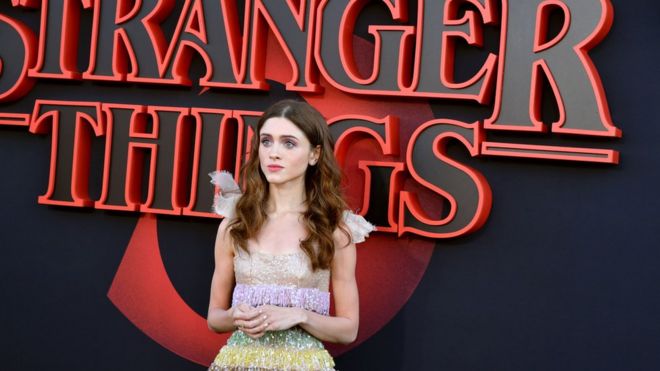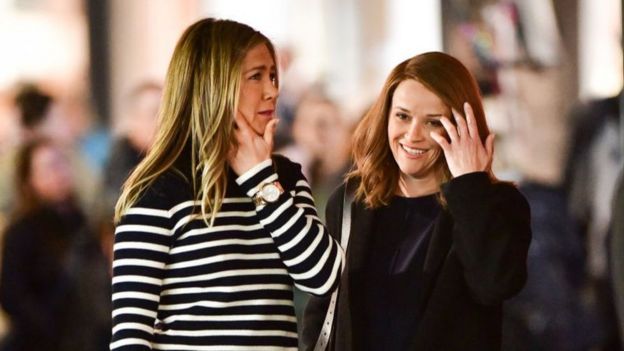Netflix feels the pressure as competitors circle
 GETTY IMAGES
GETTY IMAGES
As the famed and admired early-mover in the high-quality streaming industry, Netflix has built a formidable business worth in the region of $125bn. In the past three months, it added 6.7million new subscribers, bringing its total userbase to 153million worldwide.
But the next three months will prove to be its most challenging yet. Soon, Netflix will be competing with Disney+, HBO Max and Apple+ - all companies with enormous brand recognition and a strong desire to take their own slice of streaming’s riches.
On Wednesday, Netflix wrote to investors to tell them that competition would be a good thing. The rising tide of streaming services would just tempt more people away from “linear TV”, as they term it, and into streaming services.
“Just like the evolution from broadcast TV to cable, these once-in-a-generation changes are very large and open up big, new opportunities for many players,” the company told investors.
“For example, for the first few decades of cable, networks like TBS, USA, ESPN, MTV and Discovery didn’t take much audience share from each other, but instead, they collectively took audience share from broadcast viewing.”
Netflix pointed to the fact that its growth rate in the US and Canada had been almost identical in the past six years, despite only one of those markets - the US - having a significant competitor in Hulu.
That may be the case, but Netflix’s argument neglects to address what will be different about what it can offer subscribers in the years ahead. Netflix’s back catalogue is in the process of being slowly picked to pieces, with competitors taking back shows and movies that they agreed to put on Netflix at a time when they didn’t have a streaming product of their own.
Lost shows
In one high-profile example, the era-defining sitcom Friends, which has been a huge hit on Netflix since being added in 2015, will be moving entirely to HBO’s platform in 2020.
In what was seen as an effort to counteract that loss, Netflix reportedly paid an astronomical half a billion dollars to secure the rights to Seinfeld. Up against Friends, Seinfeld has arguably far less global appeal, and looks rather tired when compared to Curb Your Enthusiasm, Larry David’s Seinfeld spin-off-of-sorts, which will be an HBO Max exclusive.
Friends and “Curb” are just two examples. Netflix is losing shows hand over fist. British classics, such as The Office, are now on Britbox. The US Office, cited by many Netflix users as great “background noise”, is being taken away, too - for NBC’s new streaming service, Peacock. That’ll launch in April.
 GETTY IMAGES
GETTY IMAGES
It means Netflix will need to rely even more heavily on its original content. The “Netflix Original” brand is already well-established and highly-respected. Netflix originals took away 27 wins at this year’s Emmys (HBO won 34, Amazon 15).
“While the new competitors have some great titles (especially catalogue titles),” Netflix told investors, “none have the variety, diversity and quality of new original programming that we are producing around the world.”
That assertion on quality is to be debated in the pages of the Hollywood press, not here. But what’s inescapable for Netflix is that, despite the critical acclaim, those originals aren’t having the bottom line impact investors expect.
Even with the return of one of its stand-out originals, Stranger Things, this most recent quarter (three months ending in September) saw Netflix add just 530,000 new subscribers in the US, below Wall Street's expectations. In the previous quarter, it lost 126,000 subscribers in the country.
Its subscriber growth, then, has mostly come from investing in international markets - with 6.26 million paid members added in the last quarter.
Outbid
Without a strong back catalogue, Netflix knows it must keep investing in original content to survive, an extremely costly endeavour: analysts have said the company is going to spend around $15bn on new content this year.
To maintain that kind of investment, it told investors today it was looking to borrow more money, against a backdrop of investors becoming increasingly worried that the return of investment may not be coming, and that with deep-pocketed newcomers muscling in, the price of acquiring new programmes could rise further.
Netflix chief executive Reed Hastings admitted his company was outbid for Fleabag, which ended up being a co-production between Amazon and the BBC, and arguably the most talked about new show of the past year. Phoebe Waller-Bridge, the show’s co-writer and star, has now signed to Amazon exclusively.
Meanwhile, Apple flexed its riches in beating Netflix to securing “The Morning Show”, Jennifer Aniston’s return to TV, where she'll appear alongside Reese Witherspoon. Apple’s clout brings another advantage: every new purchase of an Apple device will come with a year’s subscription of Apple+. Netflix has its work cut out in convincing Apple users to add its service on top. So does everyone else, for that matter.
Netflix looks precarious. Old shows are disappearing, and the company faces an unprecedented fight for the new ones.
Reed Hasting’s visionary approach to delivering movies over the internet gave Netflix a 12-year head start, but that counts for little when customers can stop paying whenever they please.
As Mr Hastings told an audience in the UK last month, his company is now part of “a whole new world” (though, if you want to see the movie featuring that song… it’s a Disney+ exclusive).
_____
Follow Dave Lee on Twitter @DaveLeeBBC

No comments:
Post a Comment